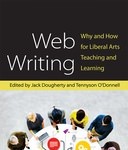 I’m still borrowing e-books from public libraries. I loved the digital edition of the late Louis Auchincloss’s memoirs that popped up when I was browsing the electronic stacks of a library system near me here in Northern Virginia.
I’m still borrowing e-books from public libraries. I loved the digital edition of the late Louis Auchincloss’s memoirs that popped up when I was browsing the electronic stacks of a library system near me here in Northern Virginia.
Public libraries at their best can be Serendipity Central.
But I rely much less these days on library books than before. Too often, some major e-books are AWOL from library collections or, as documented earlier this year by the Washington Post, have long waiting lists.
So I turn to Amazon, the public domain or Creative Commons titles instead.
Have I lost my enthusiasm for a well-stocked national digital library system, or, to be exact, two of them (one public, one private)? Not at all. The current mess just shows the need for a thoughtful, genuinely national strategy.
The American Library Association and the Digital Public Library of America, the Harvard-originated group devoted to the digital library issue, should try a carrot-and-stick approach with publishers. I’ll explain later on in this essay and not stint on the “stick” part. But it would be a huge oversimplification just to cast publishers as villains. While gouges are a problem, another one dwarfs it: the inadequate amount of money available for e-books, period—in part a byproduct of the library world’s failure to come up with a cohesive, far-reaching strategy and sell funders on it.
I’m not anti-ALA. I know, like and respect Maureen Sullivan, the ALA president; but her organization is begging in effect for some tough love here, and I’ll oblige.
Yes, I can understand why Maureen complained again to U.S. publishers, especially after they jacked up e-book prices; moreover, some have withheld some major titles from the library market. In certain ways, publishers have actually made life harder for America’s libraries in the wake of discussions with ALA. No wonder David Lee King, an activist librarian in Kansas, has urged the ALA to do “something more concrete, like, ‘everyone call Penguin on October 1 at 2 p.m., and ask for the same thing’? And then provide some talking points to use during the phone call.”
So what’s the solution? Macmillan, one of the obstinate publishers, will be starting up a pilot program for e-book lending—so that Simon & Schuster would end up being the only Big Six house not to lend e-books to libraries. But we don’t know the details of the Macmillan plan, and beyond that, this is hardly a comprehensive solution to the real problem of the library e-book world: the miserliness that American politicians have shown toward our libraries despite massive demand for their services in most cities.
I passionately agree with Maureen’s well-presented argument that “America’s libraries have always served as the ‘people’s university’ by providing access to reading materials and educational opportunity for the millions who want to read and learn but cannot afford to buy the books they need. Librarians have a particular concern for vulnerable populations that may not have any other access to books and electronic content, including individuals and families who are homebound or low-income. To deny these library users access to ebooks that are available to others—and which libraries are eager to purchase on their behalf—is discriminatory.”
You’d also think that publishers would welcome the exposure that their digital wares can enjoy through libraries, especially with the unfortunate closings of so many bookstores and the possibility of library patrons buying books through links on library sites. Dream on. If it takes legal action or legislation to free up e-books for libraries and also force publishers not to gouge libraries, I’m all for it.
At the same time, I won’t hold my breath for anything to happen in those areas. The ALA letter says: “Public libraries alone spend more than $1.3 billion annually on their collections of print, audio, video, and electronic materials.” But, Maureen, this is really just a speck of the tens of billions of publishers’ revenue.
Can you really expect publishers to pay that much attention to the ALA if, on the whole, libraries just don’t count that much?
Libraries are important in niches, but that’s it. David Lee King is right to ask the ALA to urge its members and library boards to be forceful and more targeted in their dealings with publishers. But such an approach will go only so far without libraries mattering more in the grand scheme of things. And don’t expect an abundance of help from the American media. Newspapers and broadcasters are major copyright holders and, if anything, might identify more with large book publishers than with libraries. And Net activists? Too many will just keep buying at Amazon without considering the digital divide issues. Some ideologues online might even welcome the decline or demise of public libraries.
In the end, what public libraries really need is a carrot-and-stick approach—one that would appeal to major publishers but at the same time show that libraries will go elsewhere for content if need be. Here are the elements of the plan:
1. Instead of spending so much time fighting with publishers and the rest of the copyright lobby—major contributors to politicians, especially Democrats—the ALA and others from the library world should look for common interests with the Big Six as well as smaller houses. It’s a good fit. The Big Six pack clout through campaign donations from executives of parent corporations as well as like minded companies outside publishing. The librarians have the grassroots ties and an abundance of goodwill. Libraries and publishers should team up at all levels of government to increase the $1.3 billion. All the talk about budget deficits notwithstanding, let’s remember that this sum is a fraction of the cost of just one nuclear aircraft carrier, $4.5 billion.
Shaving just a fraction of defense spending, cutting out boondoggles like the terrorist-friendly “Quarter Pentagon” in my hometown of Alexandria, Virginia, could multiply the amount available for public libraries and the creation of national digital library systems. Think of this as a much-needed form of “information stimulus” that would help in a number of areas ranging from education to development of entrepreneurs. “Smarter” in the end means “richer” in an era when so many U.S. workers must constantly reeducate themselves to keep up with technology and other fast-changing fields. Librarians and publishers alike should stop being so infuriatingly parochial and try harder to align their interests with those of the country at large. The nature of e-books can only help by reducing shelving costs and the like, so that libraries are more efficient and thus are an easier ‘sell’ to politicians and taxpayers and philanthropists (I’m all in favor of foundation money augmenting the public variety!).
Toward this end, I’d like to see the ALA pay more attention to the DPLA while encouraging it to give more priority to public library needs and work toward the establishment of two national digital library systems. A single system would very likely be dominated by the academic and cultural elites at the expense of popular needs.
2. Libraries should work with the DPLA toward the purchase of OverDrive, the largest distributor of library e-books to publishers, so that they can enjoy greater control over the development of e-book collections and bargaining with publishers. I want library books residing on library servers, at least to the greatest extent possible. At the same time, it is imperative that librarians remember their limited clout with big publishers and play fair, rather than seeing this as an instant solution to pricing issues through bullying of publishers. Otherwise houses will simply flee OverDrive.
3. With OverDrive as a distributor already plugged into the public library system, libraries could and should strive to develop their own content, not to replace commercial e-books but to provide the public with first-rate, well-edited titles of local interest and other niche items. Some originally minor titles might actually end up as bestsellers on the commercial side. Yes, libraries could collaborate with receptive publishers of all sizes—those houses could benefit from librarians’ intimate knowledge of local markets as well as their promotional capabilities.
4. In other ways, too, aided by the DPLA, public libraries could develop their own digital ecosystem as an alternative to Amazon’s (again, not a replacement—just an alternative). I applaud the work of pioneers like the Douglas County Libraries in Colorado. DCL seeks to buy books directly from publishers, own them for real and house them on library servers. But we really need a coordinated national approach picking the best brains of our technical community, and the DPLA would be a natural ally for public libraries, just as the university community understood the need for a separate public system. The two systems could have overlapping boards and share a common technical services organization, in addition to undertaking numerous content-related collaborations when it made sense for both (scholarly monographs are a long way from the bestsellers that so many public library patrons favor).
I’m going to share this post with Maureen Sullivan and the DPLA (for which she has worked as a consultant on personnel matters). Longshot? Perhaps. But maybe the above thoughts can inspire the ALA and the digital library organization to be more responsive to the library needs of typical patrons here in the States. As for other countries, perhaps some of the above will be relevant, especially in the UK, where libraries are even more cash-strapped than here in the U.S.
Note: This post may be subject to revisions.
Related: Minutes from the DPLA’s governance workshop last month at the National Archives. Kudos to the DPLA for releasing detailed minutes!
Editor’s note: This article is Creative Commons-licensed content, and was originally published at LibraryCity.org.



































Certainly, government support of libraries is not what it was and perhaps not what it should be but things have changed. Physical books required storehouses close to book borrowers but that is increasingly no longer the case. If there were a National Public Library that distributed eBooks, eTextbooks, eJournals and eMagazines via the Internet, how could local libraries re-invent themselves as essential players in this new world? Helping patrons discover good reads in that national catalogue seems obvious but what about a more innovative mission? For example, could libraries get away from lending and into ePublishing by encouraging and helping local people to create and distribute their own free, CC-licensed eBooks? Call it hyper-local ePublishing.
@Frank: Many thanks for your feedback. I myself have long felt that local public libraries should get into hyperlocal publishing. And they should be able to buy any books that the national digital library turns down; here’s to local autonomy!
But, yes, it would be more efficient for the basic infrastructure and procurement operation to be national–which actually would free up resources so the local libraries could be more local. Bottom line: we agree!
What’s more, I’d also like to see libraries encourage forms of creativity beyond writing and publishing.
Imagine all the opportunities possible in areas such as 3D printer technology–I’m hardly the first to suggest the 3D angle. Simply put, I have no problem whatsoever envisioning useful activities to replace the mechanical chores that a national digital library could reduce the need for.
Here’s to librarians being able to spend more time being librarians and less time working as clerks! Of course, I don’t expect paper books to vanish overnight. We’re talking about an evolutionary process. – David0
Perhaps what is needed is a court case to clarify the fair use and lending rights of libraries for e-books. One scenario would be for a group of activist minded patrons to very publicly donate their used copies of ebooks that are not currently available from publishers to a public library that has the capability to host and lend them. Meanwhile, the library prepares a legal defense of their lending rights.
Quote on urging the ALA to do “something more concrete, like, ‘everyone call Penguin on October 1 at 2 p.m., and ask for the same thing’? And then provide some talking points to use during the phone call.”
If everyone calls at once, there’d be no need for talking points, since the lines would be jammed.
I do have one suggestion the ALA might raise with the major publishers, although it hinges on creating a broadly compatible ebook-reader. Libraries could offer to link, on their webpage for an ebook, to whatever retail source there is for the print and digital editions. That’d not only mean some sales, it’d give publishers a way around Amazon to their own online stores.
@NoUtopian and @Michael
N: Yes, I’d be curious about the outcome of such a fair use case. This is hardly a full solution to the problem of libraries not having enough e-book titles, but it could be useful at least as part of the answer — IF the verdict helped. If not? Could this case actually harm fair use? I don’t know.
M: I appreciate your point about the jammed phone line. Perhaps the solution would be to give out an email address instead. As for library links to publishers and/or stores – I’ve long been in favor of that.
Good thoughts, David. Libraries saved me when I was a teen, giving me both reading pleasure and a safe place to go after school so I’m their biggest fan. As a publisher, though, I need a revenue model that will let me pay may authors (and myself). I’ve read comments that publishers are greedy when I think the real problem is that tax-payers are stingy. Digital books are different–if your library has all the selection of Amazon, for example and you don’t even have to leave the house to access it, why would you ever pay for a book again? That, I think, is the real concern and until something is done to recognize and deal with it, I don’t see publishers and libraries finding happiness together. I’m not saying we can’t do something… as I said, I’m a library true-believer. I just don’t think that a solution that requires publishers to pay the whole freight is going to work.
Rob Preece
Publisher
“especially Democrats”
Democrats? You mean Republicans, don’t you? I find it hard to believe, as a Democrat and a librarian, that Democrats would stand in the way of free access to information.
Alas, Jennifer, some of the worst copyright laws from a library-and-school perspective were signed by Bill Clinton. Please note that I admire Clinton’s many accomplishments, am a lifelong Democrat myself, testified at one of the Clinton Administration’s copyright-related hearings and wrote a copyright essay for the Clinton-era Department of Education. But facts are facts.
While I don’t have the stats in front of me, I’m confident that Democrats over the years have received far more money from the copyright lobby, especially Hollywood, than have Republicans. But maybe this could actually be an advantage in the long run If the ALA and the copyright lobby would spend less time fighting over the slices of the pie and more time lobbying together for a bigger pie, in the form of more generous library appropriations at all levels of government. The library market for content is actually much smaller than it could or should be. It’s time for book people of all kinds – librarians and publishers alike – to spend more time on common interests.
David
P.S. See who signed the law discussed at: http://en.wikipedia.org/wiki/Copyright_Term_Extension_Act